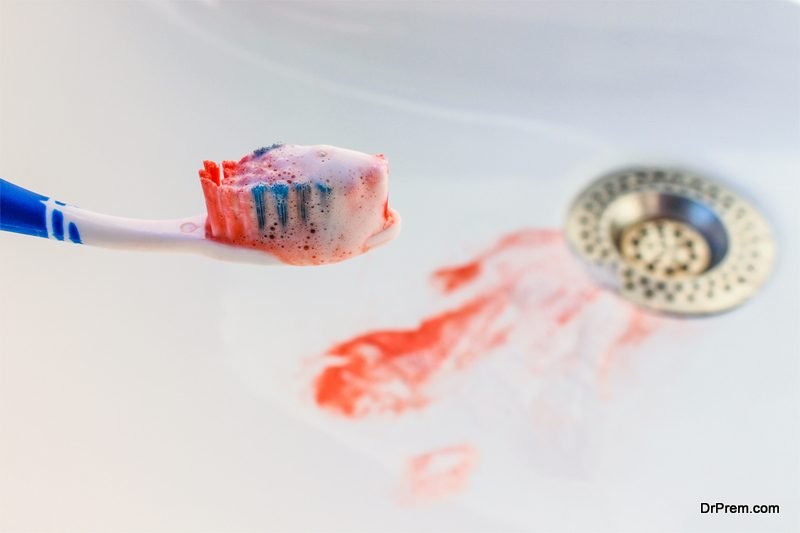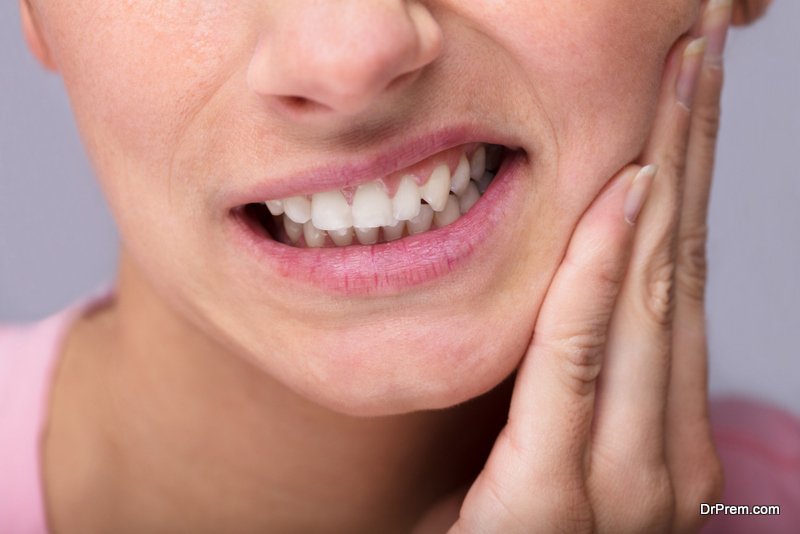Dental hygiene is about more than just a beautiful smile, fresh breath, and pearly whites. Untreated dental conditions can lead to complicated health issues compromising your major organs. Going for routine cleanings and dental check-ups is important and recommended at least once a year. But what if you experience complications prior to your appointment? How do you know what constitutes an emergency visit? Here are 6 signs that you need to see a dentist immediately! And if you need help finding one, you can read more here.
1. Persistent Pain
 This is one of the most obvious reasons to see a dentist. If you’re experiencing any kind of pain in your mouth, it’s a clear sign that something is wrong. The pain could be in your tooth, gums, tongue, roof of the mouth, or even your jaw. If treating the pain with over the counter medications and ice isn’t helping, you may have a serious issue that needs immediate attention.
This is one of the most obvious reasons to see a dentist. If you’re experiencing any kind of pain in your mouth, it’s a clear sign that something is wrong. The pain could be in your tooth, gums, tongue, roof of the mouth, or even your jaw. If treating the pain with over the counter medications and ice isn’t helping, you may have a serious issue that needs immediate attention.
You may have a cavity, cracked tooth, abscess, exposed nerve, or impacted tooth. The dentist will examine you and may request X-rays if needed. This is all done inside the comfort of their office. Once your condition has been diagnosed, treatment can begin. As unpleasant as the dentist might seem, letting pain go on for too long will only complicate things and make treatment more difficult.
2. Visible Spots or Sores
While there’s no specific cause for sores in the mouth, they can be extremely painful and need evaluation and diagnosis from a dental professional. Depending on the type of sore, rinsing with warm water and salt can offer temporary pain relief and may reduce swelling. This remedy treats common canker sores. Lesions are another name for mouth sores and can appear on a person’s gums, lips, tongue, or the roof of the mouth. Your dentist may request a biopsy if they’re concerned that the lesions are cancerous. Some lesions can be removed or treated with medication.
3. Sensitivity
 Sensitive teeth can be very painful. If you’re experiencing extreme sensitivity to either hot or cold foods, you should see a dentist for evaluation. Sensitivity is often classified as dentin hypersensitivity or root sensitivity. Sharp pain when eating extremely cold or extremely hold foods, as well as breathing in cold air or eating acidic foods, are all signs of sensitivity. Your dentist may recommend special toothpaste designed for sensitive teeth. You may also need to avoid specific foods until your condition is under control. Other treatment options include a fluoride rinse, root canal, or surgical gum graft.
Sensitive teeth can be very painful. If you’re experiencing extreme sensitivity to either hot or cold foods, you should see a dentist for evaluation. Sensitivity is often classified as dentin hypersensitivity or root sensitivity. Sharp pain when eating extremely cold or extremely hold foods, as well as breathing in cold air or eating acidic foods, are all signs of sensitivity. Your dentist may recommend special toothpaste designed for sensitive teeth. You may also need to avoid specific foods until your condition is under control. Other treatment options include a fluoride rinse, root canal, or surgical gum graft.
4. Difficulty Chewing or Swallowing
Some people mistakenly think difficulty chewing or swallowing is an issue to do with the throat alone. But most times, your dentist can help treat this condition. If chewing is painful or tiresome, or you’re experiencing trouble swallowing or pain, it may be a condition known as dysphagia. Dysphagia generally affects older individuals and may actually be a neurological disorder affecting your nerves and muscles. Often times, strengthening these muscles and working with a therapist can improve the condition and make it easier for you to swallow and chew your food.
5. Bleeding or Painful Gums
 Swollen, painful, and bleeding gums can all be a sign of a serious condition known as gingivitis (gum disease). Gingivitis is caused by plaque buildup. When plaque builds on our teeth, it attacks the healthy tissues in your mouth. This causes inflammation, irritation, and in some cases, bleeding. If you’re diagnosed with gum disease, your dentist may recommend a plaque fighting toothpaste or mouth rinse. Bleeding gums may also be a result of aggressive brushing or flossing. While these practices are important for eliminating plaque, you need to be gentle.
Swollen, painful, and bleeding gums can all be a sign of a serious condition known as gingivitis (gum disease). Gingivitis is caused by plaque buildup. When plaque builds on our teeth, it attacks the healthy tissues in your mouth. This causes inflammation, irritation, and in some cases, bleeding. If you’re diagnosed with gum disease, your dentist may recommend a plaque fighting toothpaste or mouth rinse. Bleeding gums may also be a result of aggressive brushing or flossing. While these practices are important for eliminating plaque, you need to be gentle.
While you should see your dentist regularly, some issues require immediate attention. If you’re experiencing any of the above mentioned conditions, it could be a sign of something serious. Schedule an appointment with your dentist as soon as possible to avoid further complications down the road.
Article Submitted By Community Writer




